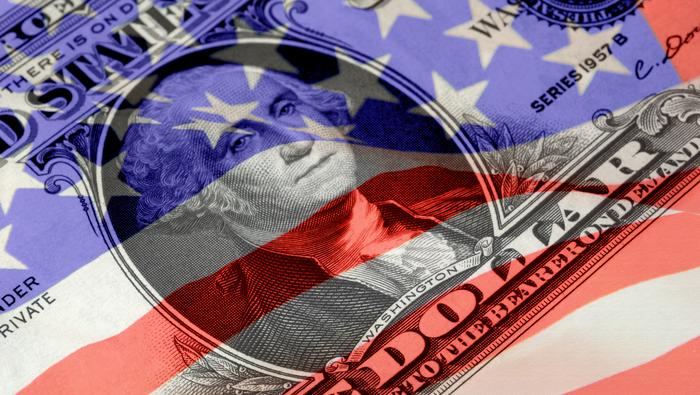Whether the US economy can achieve the so-called "soft landing" has become a
hot topic in current economic discussions.

A soft landing, in simple terms, is to control inflation by regulating
interest rates without triggering an economic recession. Although it sounds
beautiful, the actual operation is quite challenging. Let's explore why this is
the case and analyze, from several aspects, whether the US economy can
successfully achieve a soft landing.
We need to understand how the Federal Reserve adjusts interest rates.
The Federal Reserve is the central bank of the United States, which
influences borrowing costs in the market by setting the federal funds rate. This
interest rate affects various loan interest rates, including mortgage loans,
credit cards, commercial loans, etc. The Federal Reserve controls the federal
funds rate by buying and selling Treasury bonds. When the Federal Reserve wants
to raise interest rates, it will sell Treasury bonds, reducing liquidity in the
market. When it wants to lower interest rates, it will buy Treasury bonds to
increase liquidity in the market.
The goal of this policy is to balance two key objectives: first, to maintain
economic growth, and second, to control inflation. Economic growth means more
employment, income, and output, while inflation means higher prices. Ideally,
the Federal Reserve hopes to achieve a state where both economic growth and
inflation are within a reasonable range, which is known as a soft landing. But
the actual operation is very complex, as the economic system is influenced by
numerous internal and external factors.
Has the Federal Reserve adopted a moderate tightening policy?
Since 2021, the Federal Reserve has raised the federal funds interest rate to
the highest level in 22 years, mainly to cope with the high inflation caused by
COVID-19 in 2020. However, inflation has started to slow down this summer, and
there have been signs of cooling in the labor market, which has made some
economists and Federal Reserve officials optimistic about the possibility of a
soft landing. Therefore, the Federal Reserve plans to maintain interest rates
unchanged at this week's meeting and predicts that it will not lower interest
rates in the future to ensure that inflation does not rebound. But this also
comes with some risks. If the Federal Reserve keEPS interest rates too high for
a long time, it may increase the risk of economic recession, as has happened in
history.
Has the US economy maintained a moderate growth rate?
Since the beginning of this year, thanks to the government's stimulus plan
and the easing of the epidemic, the US economy has shown strong growth. Despite
the slowdown in economic growth in the second half of last year, there have been
signs of a rebound recently. Consumer spending and business activities both show
an accelerating trend, which may mean that the economy is still overheating and
the decline in inflation may stagnate or reverse. If this trend continues, the
Federal Reserve may believe that further interest rate hikes are needed to curb
inflation, but this may also increase the risk of an economic recession, with
some economists even predicting a possible recession in the second half of next
year.
Have energy prices remained stable?
Energy prices are an important factor affecting inflation and growth, and
rising energy prices can push up price levels while suppressing consumer and
business spending. Recently, due to OPEC and its allies reducing production and
global demand recovery, oil prices have risen to their highest level in ten
months, which may drive inflation up again and have an impact on costs and
income in other areas. In history, soaring oil prices have been an important
factor leading to an economic recession.
Has the financial market remained stable?
The financial market is a core component of the economic system, promoting
the allocation and management of funds, credit, and risk. However, financial
markets may also experience malfunctions or fluctuations, leading to issues such
as credit tightening, asset depreciation, or liquidity crises, all of which may
have serious impacts on the real economy. At present, financial markets are
facing some uncertainty and risks. On the one hand, due to the Federal Reserve
raising interest rates and planning to reduce its $8.1 trillion balance sheet,
global borrowing costs are rapidly adjusting, which may put pressure on some
investments or plans that rely on low interest rates. On the other hand, as the
US government's fiscal deficit continues to expand, it needs to issue more
Treasury bonds to finance, which may lead to oversupply in the bond market,
pushing up the yield of Treasury bonds and thus affecting other interest rates.
Some important financial market participants, such as Jamie Dimon, the CEO of
JPMorgan Chase, have warned of uncertainty and risks.
From the above analysis, it can be concluded that whether the US economy can
achieve a soft landing is a complex and challenging issue that is influenced by
multiple factors and variables and not only depends on the policies and
judgments of the Federal Reserve. Soft landing requires a certain amount of luck
and skill and is difficult to sustain for a long time. In history, the US
economy only achieved a true soft landing in 1995. In the current situation, we
still need to further observe and verify whether the US economy can achieve a
soft landing again. This issue will continue to receive attention as it has
significant implications for the global economy and financial markets.
Disclaimer: This material is for general information purposes only and is not intended as (and should not be considered to be) financial, investment or other advice on which reliance should be placed. No opinion given in the material constitutes a recommendation by EBC or the author that any particular investment, security, transaction or investment strategy is suitable for any specific person.







